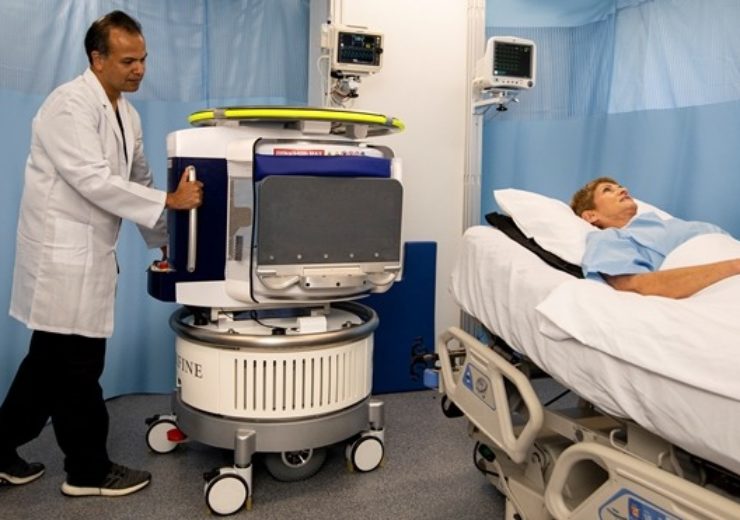The new point-of-care MRI system operates through a simple user interface on a tablet and does not need trained technicians, shielded electronics, or separate hospital facilities

Image: Hyperfine Research has unveiled the world’s first point-of-care MRI system. Photo: courtesy of Business Wire.
Hyperfine Research has unveiled a new point-of-care (POC) magnetic resonance imaging (MRI) system, which is designed to be used anytime and anywhere for any patient who requires it.
Claimed to be the world’s first low-cost point-of-care MRI system, Hyperfine’s new product can be operated through a simple user interface on a tablet and does not need trained technicians, shielded electronics, or separate hospital facilities.
Hyperfine POC MRI device, which is currently 510(k) pending, is not available for sale in the US.
According to the company, the new portable MRI is 20 times less costly, consumes 35 times lower power, and is 10 times lighter than the major current MRI machines.
Hyperfine Research chief medical officer Dr John Martin said: “We completely re-examined MRI from the ground up.
“Hyperfine’s system will open avenues to reach patients in clinical settings never before imagined for MRI.”
Hyperfine’s POC MRI will provide standard clinical contrast images and informative 3D renders
The company has designed the new POC MRI system to create standard clinical contrast images and informative 3D renders.
Hyperfine’s compact and open-design scanner wheels directly to the bedside, plugs into a wall outlet, and facilitates direct contact with the patient.
Hyperfine is involved in the development of software that advances with each use through deep learning algorithms to reconstruct images and help in the diagnosis of pathologies.
The company is exhibiting the new POC MRI system at the American College of Emergency Physicians (ACEP) Scientific Assembly 2019, which is being held in Denver from 27 to 29 October.
Hyperfine Research founder and chairman Dr Jonathan Rothberg said: “More than just a revolutionary imaging system, Hyperfine is a platform for new applications.
“Our cloud-based software development kit will enable third parties to create AI applications for Hyperfine’s device. Ultimately, Hyperfine aims to facilitate stroke triage, continuous monitoring of unstable patients, and MRI guidance of surgical interventions.”
Earlier this month, Xoran Technologies has secured $8m matching grant from the National Institutes of Health (NIH) for integrating its Xoran’s mobile CT imaging system xCAT IQ with surgical navigation, and developing a mobile CT imaging solution for spine.
